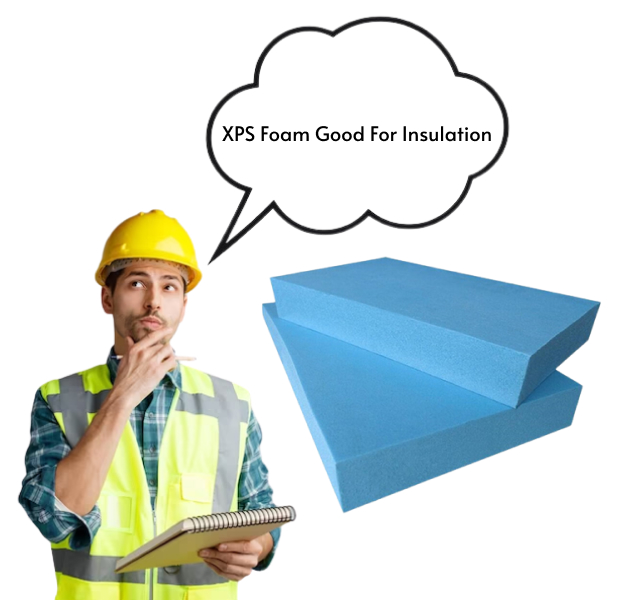
Is XPS foam suitable for insulation purposes?
Is XPS foam good for insulation?
Absolutely, XPS Foam is great for insulation. XPS foam (Extruded Polystyrene foam) is an excellent insulation material. Its closed-cell structure delivers efficient thermal insulation, contributing to energy savings and indoor comfort. It’s widely applied in construction for roofs, walls, foundations, and floors due to its durability and versatility. Its ability to resist moisture further enhances its suitability for various projects.
Benefits of XPS Insulation:
XPS Insulation (Extruded Polystyrene foam) is widely recognized as a good insulation material due to its excellent thermal performance and durability. It offers several benefits that make it a popular choice for insulation:
1. High Insulating Efficiency:
XPS Board has a closed-cell structure that provides effective insulation by impeding the transfer of heat. This helps maintain a comfortable indoor temperature and reduces energy consumption for heating and cooling.
2. Moisture Resistance:
The closed-cell structure of XPS Insulation makes it highly resistant to moisture absorption. This property is particularly advantageous in applications where moisture control is crucial, such as below-grade installations or areas prone to water exposure.
3. Strength and Durability:
XPS Board has good compressive strength, allowing it to withstand the weight of structures and heavy loads. This makes it suitable for applications such as under concrete slabs or flat roofing systems.
4. Longevity:
Properly installed and protected from UV exposure, XPS Foam can have a long lifespan without significant degradation in its insulating properties.
5. Versatility:
XPS Insulation Board can be used in various construction scenarios, from roofs and walls to foundations and floors. It can be shaped and cut to fit different spaces, offering flexibility in installation.
6. Fire Resistance:
XPS Foam is inherently fire-resistant due to its compact cellular structure. Flame-retardant additives can be incorporated to enhance its fire performance further.
However, while XPS Thermal Insulation offers numerous advantages, it’s important to consider its disadvantages as well, including environmental concerns, limited recyclability, and potential moisture accumulation in certain conditions. When evaluating insulation options, it’s crucial to assess the specific requirements of your project and balance the pros and cons of XPS Board against other insulation materials to make an informed decision.













How long does XPS insulation last?
The lifespan of an XPS insulation material can vary based on factors such as environmental conditions and usage. Generally, well-maintained XPS insulation can last for several decades, providing effective thermal insulation and moisture resistance for various applications.
Is XPS foam a good choice for insulating my home on a budget?
Hello Joel,
Yes, XPS foam is a cost-effective option for home insulation. Its high insulating efficiency helps reduce energy bills, potentially offsetting the initial investment over time. However, it’s essential to consider other factors like the climate in your area and the specific requirements of your project to determine if XPS Foam is a good choice for insulating your home.
You mentioned fire resistance as a benefit of XPS foam insulation. Are there any specific codes or regulations I need to be aware of when using XPS insulation in my home to ensure compliance with fire safety standards?
Hello Jaffery,
Yes, building codes and regulations can vary by location, so it’s important to consult your local building authority or code officials to ensure compliance with fire safety standards when using XPS foam insulation. Additionally, some projects may require the use of specific fire-rated materials or additional fire-retardant treatments, depending on the construction type and intended use of the space being insulated.